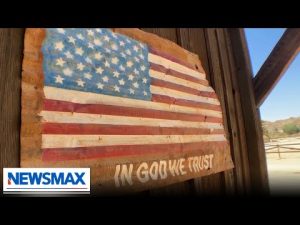In the ever-evolving battle for constitutional interpretation, all eyes were on New Orleans, where a prominent case landed before the benches of the Fifth Circuit Court of Appeals. The case draws particular attention due to its historical significance and the intriguing legal arguments presented by the Trump administration. With a three-judge panel appointed by a triumvirate of presidents—Bush, Trump, and Biden—the stage is perfectly set for a judicial showdown. It’s clear, however, that predicting the outcome is as murky as deciphering a bestseller without spoilers.
The legal limelight focuses on an ancient law, rarely dusted off but now receiving its due day in court. The Trump administration cleverly spins this law into modern relevancy by invoking a narrative that seems right out of a spy thriller. Rather than uniformed bands of soldiers marching across the border, think of a clandestine orchestration by Venezuela, using incursion tactics that would make any Netflix series gather dust. It’s a creative legal narrative, at least one that gives the judges something to chew on while the rest of us gleefully clutch our popcorn.
Meanwhile, the University world, particularly that of the Ivy League, finds itself stirring in controversy yet again, thanks to a new chapter in the Trump administration’s legal pursuits. This time, it’s Harvard under the microscope for allegedly violating Title VI of the Civil Rights Act. The charge? Deliberate indifference towards Jewish and Israeli students post-October 7th attacks, making their educational experience anything but scholarly. It’s almost as if Harvard won a dubious lottery ticket to celebrity scandal.
The crux of the accusations touches the core of educational sanctity—ensuring safety and equality for all students. With the Trump administration sharp on their heels, Harvard faces not just legal scrutiny but a public acknowledgment of its tilted political spectrum, where only a meager three percent of its faculty identify as Republican or conservative. The Left’s dominance at Harvard is about as surprising as finding maple syrup in Vermont, yet this new challenge poses deeper introspection.
This litigation becomes even more gripping once the government’s discovery process kicks in. Imagine a treasure hunt for internal documents and emails that might speak volumes of Harvard’s purported ideological surrender. The unearthing of such hidden gems could echo far beyond the prestigious gates of Harvard, providing ample fodder for critics and supporters alike. As we watch the drama unfold, one can’t help but wonder if perhaps Harvard’s legacy might need a bit of extra credit, not in reputation, but in harmony and balance. Whether the scales of justice will tilt or topple remains to be seen, but this saga is far from over.







